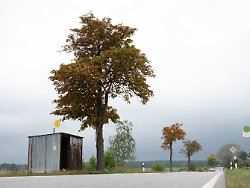Wednesday October 27, 2021
Especially in the country
55 million people with poor public transport access
The urban-rural divide in local public transport in Germany is enormous. For the millions of people living in rural areas, buses and trains run far too seldom, according to a study by Deutsche Bahn. The solution is to bring bookable transport services.
Only around 27 million German citizens who live in large cities and metropolitan regions currently have very good local public transport available. For around 55 million people who live in the surrounding area or in rural areas, the supply is significantly lower and often inadequate. This is the result of a mobility study by the Deutsche Bahn subsidiary Ioki, which is available to the newspapers of the Funke media group.
There is a dense network of 230,000 bus and train stops in Germany. But less than half of the stops in the country would be served hourly or more frequently. In large cities, 80 percent of the residents have at least one hourly service.
In order to better connect the entire population to buses and trains, more on-demand shared taxis should be used as part of local public transport, according to the study. “With flexible vehicles that are available on demand via the app in front of the door and drive to the next bus or suburban train station, around 25 million people could be offered an offer in public transport,” said Ioki managing director Michael Barillere-Scholz. Deutsche Bahn has already integrated 330 such on-demand transports into local public transport, transporting around seven million passengers.
Funding boost required
The German Association of Towns and Municipalities supports the networking of local public transport with digitally bookable transport services and calls for appropriate state support. “The urgently needed expansion of sustainable transport systems must not depend on the financial room for maneuver of individual municipalities. In order to bring modern public transport offers to the area, we now need a substantial boost in funding for the so-called regionalization funds,” said General Manager Gerd Landsberg of the Funke newspapers.
It is also clear that the mobility services away from the big cities would remain a subsidy business. Nevertheless, says Landsberg: “Germany will only achieve its climate protection goals in the transport sector if local public transport becomes a real alternative to mobility, in the city and in the country.”
